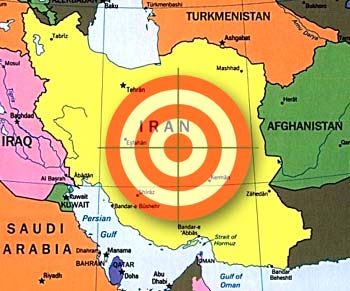How do you respond to a US “analyst” who is calling for war with Iran?
On Monocle 24’s The Daily on Thursday night, I met Joshua Muravchik of the Foreign Policy Institute of Johns Hopkins University. Since 2007, he has insisted that a military attack must be carried out against Tehran’s nuclear facilities. He repeated the demand last week in The Washington Post, “War with Iran is Our Best Option“.
Last night’s debate opened with Muravchik’s Orwellian explanation that the airstrikes on Iran are not “war” and that the Iranians are like Nazis but are not exactly Nazis.
So how to respond?
The call to war — and this is war — is usually the first refuge of the scoundrel.
In this case, if there were any facts to back up his call, perhaps we could discuss it.
But Joshua does not indicate that he knows anything about the current state of the nuclear talks, which envisage a 40% cut in Iran’s uranium enrichment and shipment of almost all enriched uranium out of the country. He does not show any knowledge of the recent history of nuclear developments, for example, that Iran has converted more than half its 20% enriched uranium since 2012 into fuel plates or oxide power, which cannot be used for a military program.
He does not show any knowledge regarding the difficulties of carrying out an air campaign, which is opposed by — among others — the Israeli military who have opposed Benjamin Netanyahu’s call for this in part because it is not practical and in part because it will spur asymmetrical warfare that is likely to add to the conflict in the Middle East.
I don’t actually think Joshua really wants these strikes on Iran. I like to think that he is bidding high — “let’s attack” — so perhaps this will spread fear and hostility and undermine the current nuclear talks.
Muravchik’s lengthy reply falls back on “unknown unknowns”: “Scott purported to know things that he doesn’t know and that no one knows….We don’t know how much of the story we know because Iran conceals things.”
To which I offer, “Well, facts can be inconvenient.”

